
Anne Stanley MP
Government Whip
Member for Werriwa
MEDIA RELEASE
Werriwa’s disaster defences will get a boost, with applications open for the Albanese
Government’s new Disaster Ready Fund (DRF).
After years of intense rain and devastating flooding this program will deliver on the Federal
Government’s election commitment to ensure Australia is better prepared for future
disasters.
Up to $200 million is available next financial year to state and territory governments, in
partnership with councils, for projects to support communities to reduce risks and better
prepare for future floods, cyclones, bushfires, storm surges and other natural hazards.
Projects under the DRF could include:
• Infrastructure projects like flood levees, drainage improvements, fire breaks and
evacuation centres to help reduce the vulnerability of communities facing high levels
of disaster risk.
• initiatives that improve collection and sharing of data, improve land use planning or
strengthen community capabilities.
It’s part of a long-term commitment to making Australia more resilient in the face of growing
natural hazards, investing up to $1 billion over the next five years.
Emergency Management Minister, Murray Watt said opening applications was an important
milestone in improving Australia’s disaster resilience.
“Australians have had a really tough couple of years with floods, fires, cyclones and more
impacting our country, and we know that these natural disasters will only increase in
intensity and frequency due to climate change,” Minister Watt said.
“That’s why before the election we committed to overhaul Scott Morrison’s failed $4.8 billion
Emergency Response Fund, which didn’t build a single disaster mitigation project in three
years.
“We’ll now put this money to work, to protect Australians’ lives, their properties, and to save
taxpayers some of the huge repair costs that are incurred after every natural disaster.
“The Albanese Government understands that by investing in ongoing disaster mitigation,
we can proactively deliver meaningful projects that curb the devastating impacts of floods,
fires and other types of disasters, rather than just react to events.
“This is an unprecedented opportunity for all state and territory governments to take positive
steps to safeguard essential infrastructure, communities, and industry. We expect them to
work with local Councils and community groups when putting forward ideas for projects.”
Ms Anne Stanley MP said that the investment would significantly reduce economic, social
and wellbeing risks in disaster-prone communities.
“This is a great opportunity for every local government, community, and industry group to
put forward their ideas on how to minimise the impact of natural hazards,” Ms Stanley said.
“We all have a role in being better prepared for natural disasters and I encourage local
governments and community organisations to put forward ideas to the NSW government.”
State, territory and local governments will be expected to match funding under the DRF,
where possible, and will be able to submit project proposals for funding until March 6, 2023.
More information about the first round of the DRF, including eligibility criteria and how to
apply, can be found on the National Emergency Management Agency’s website at
www.nema.gov.au/disaster-ready-fund.
In the past six months, the Albanese Government has made big changes to disaster
management to ensure communities are better prepared for and recover quicker from
natural disasters, including:
• Unifying the two arms of federal emergency management to create the National
Emergency Management Agency (NEMA), to build a more coordinated approach to
disaster management.
• Legislating the Disaster Ready Fund to invest up to $200 million a year in mitigation
projects like fire breaks, evacuation centres and flood levees.
• Working collaboratively with the states to fast-track ADF support and recovery
payments to help individuals, local councils, small businesses, primary producers
and non-profit organisations get back on their feet faster after a disaster.
• Getting money out the door for resilience and betterment projects in disaster-prone
regions.
• Investing in Disaster Relief Australia to provide recovery and clean up support after
disasters.
• Taking action on future building developments on floodplains, by working with the
state and territory governments through the National Cabinet process.
• Galvanising voluntary home buybacks in regions repeatedly impacted by floods.


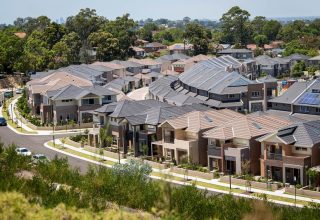



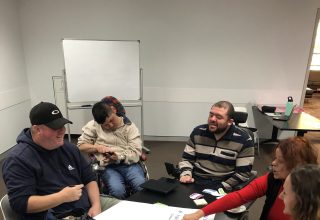

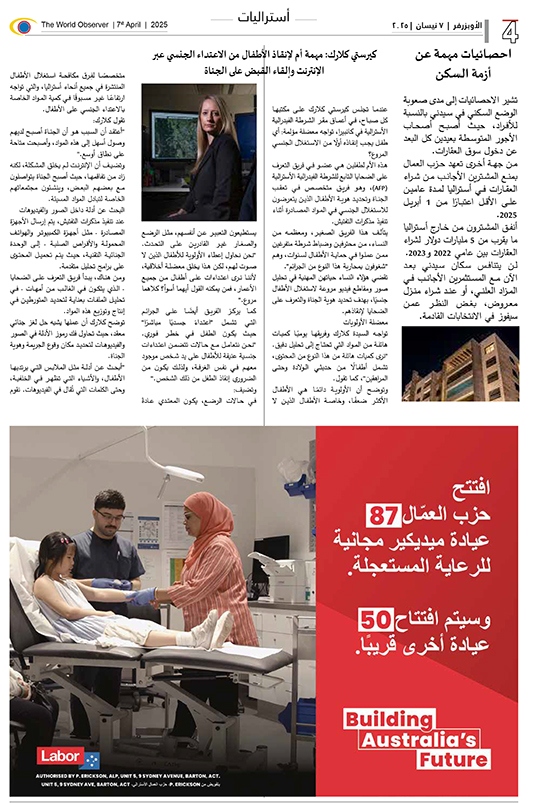
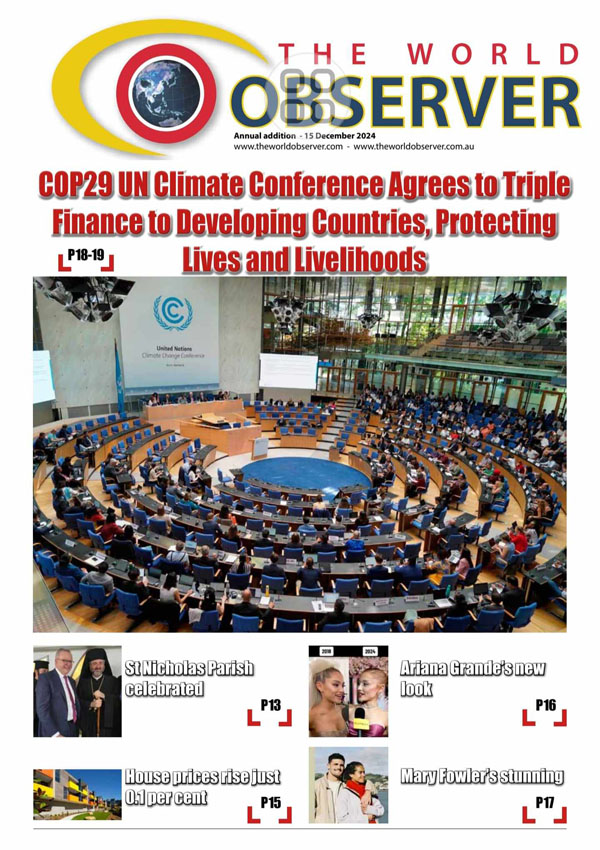
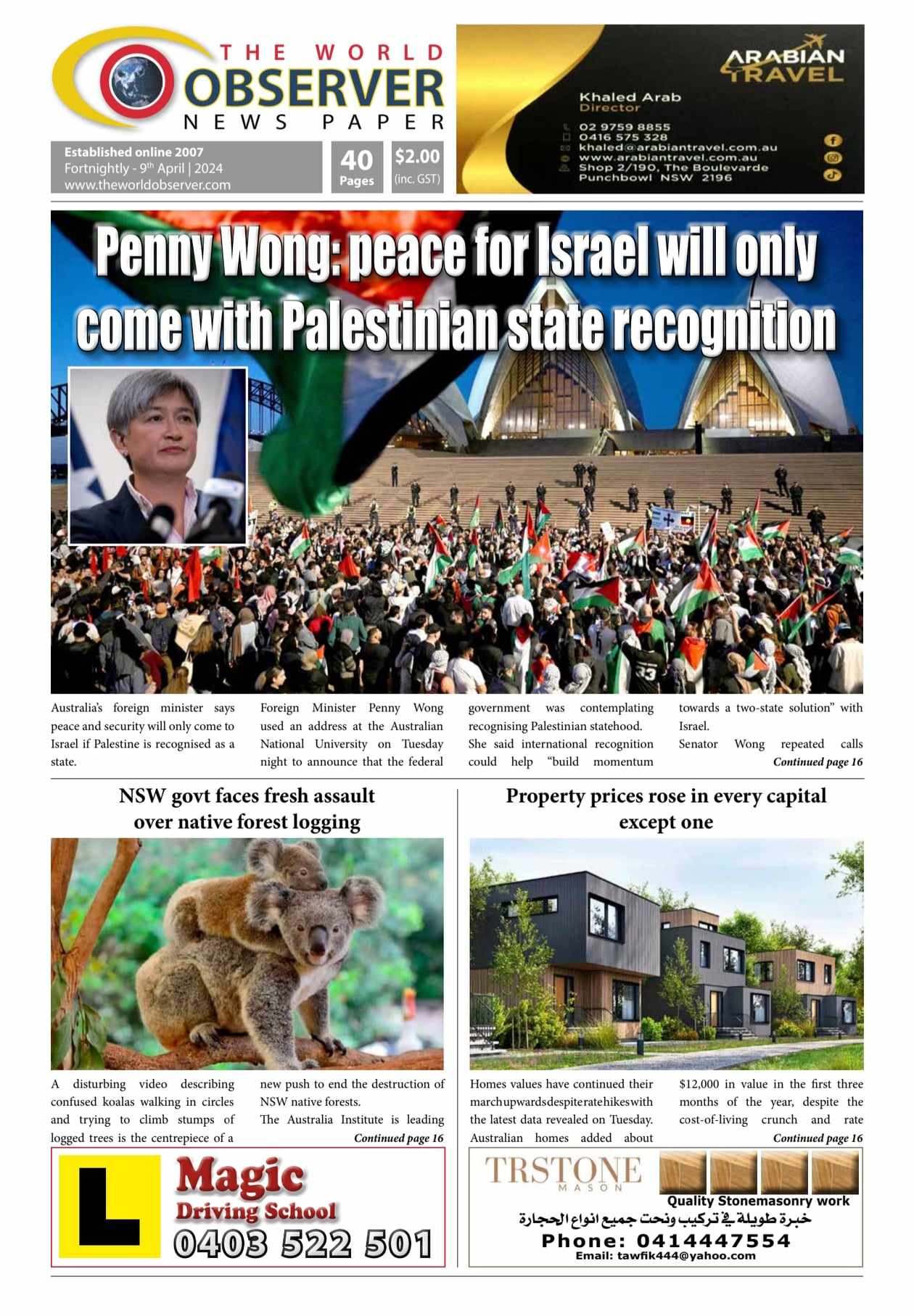





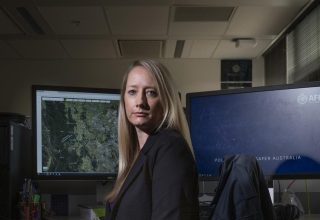





















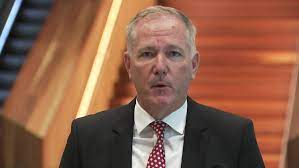

 The World Observer Media produces a daily online newspaper, a daily Arabic online newspaper and a monthly printed Arabic/English magazine and a weekly printed Arabic/English newspaper.
The World Observer Media’s mission is to entertain and educate all generation from the Ethnic Communities in Australia, who are interested in local, national and foreign information.
The World Observer Media produces a daily online newspaper, a daily Arabic online newspaper and a monthly printed Arabic/English magazine and a weekly printed Arabic/English newspaper.
The World Observer Media’s mission is to entertain and educate all generation from the Ethnic Communities in Australia, who are interested in local, national and foreign information. 


